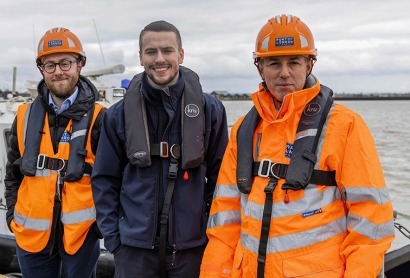
The PLA operates more than 20 vessels, including harbour service launches, driftwood collectors, hydrographic survey vessels and a large mooring maintenance craft. The original PLA target was a 50 percent reduction in the 2,054 tons of carbon emitted across its entire operations in its 2014 baseline year. Before the switch to biofuel, vessel fuel consumption was responsible for more than 75 percent of the PLA’s total carbon emissions.
Commenting on progress, PLA chief executive, Robin Mortimer, said,“Overseeing safe operations in the UK’s biggest port and busiest inland waterway involves a large number of our team working out on the river. This has traditionally been carbon intensive, with vessels using diesel taking pilots to large ships, patrolling the river, recovering driftwood and maintaining aids to navigation.
“We’re proud to have made this initial step using sustainable biofuels to reduce carbon emissions. This is interim measure is bringing emissions down, while we explore the long-term solution, using alternative fuels.”
The PLA has invested more than £120,000 in new steel fuel tanks to store biofuel at three of its bases along the river. The most recent installation, Barrier Gardens Pier, was completed just before Christmas, fully establishing biofuel as part of ‘business as usual’ for the PLA.
The use of biofuel, hydrogenated vegetable oil (HVO), reduces greenhouse gas emissions as the carbon dioxide emitted during combustion is offset by the absorption of carbon dioxide during growth of the biomass that forms the biofuel. HVO has been shown also to cut emissions of nitrogen dioxide and particulates.
The tank installation at Barrier Gardens Pier, the PLA’s principal vessel base in the capital, was part of a wider program. This included a pier extension enabling the largest vessel in the fleet, London Titan to moor there. The pier was fitted with shore power as part of the development work, so that the vessel can operate essential electrical systems when moored, without using its engines to generate power.

